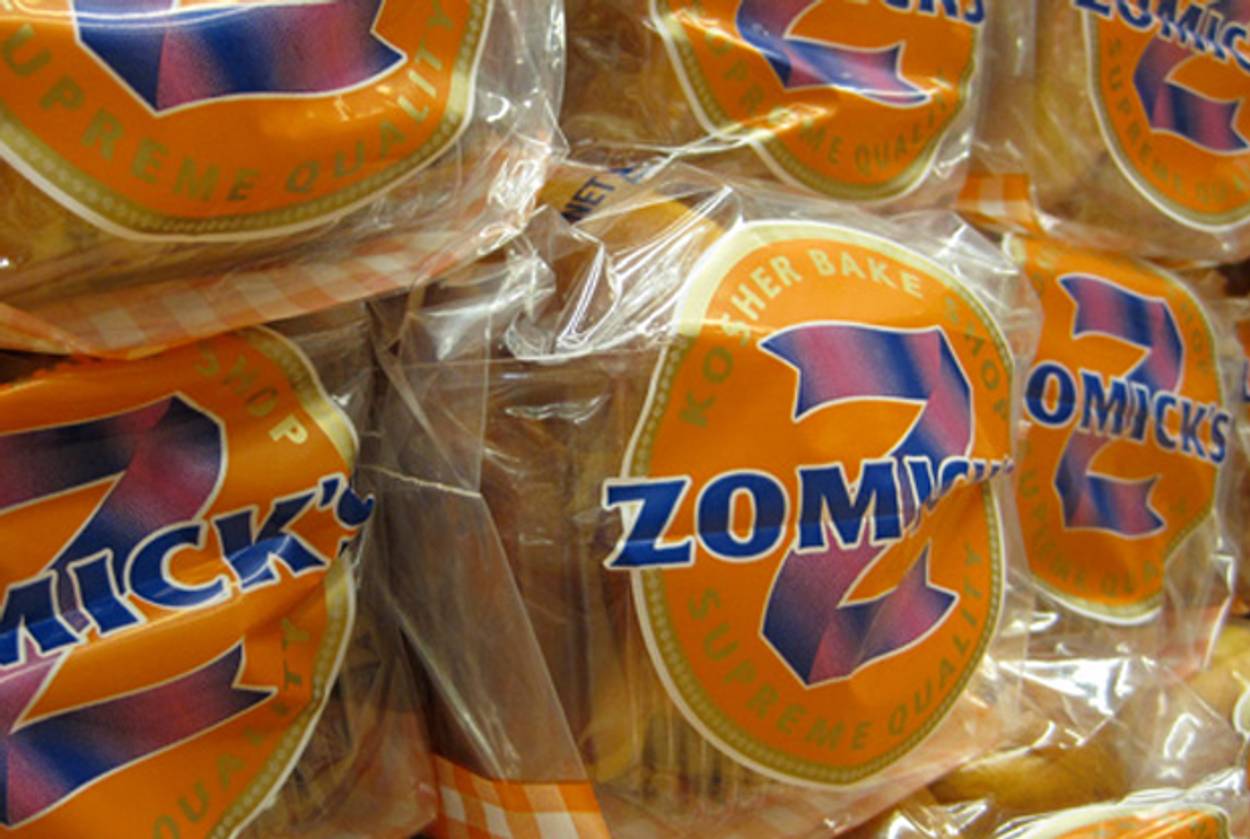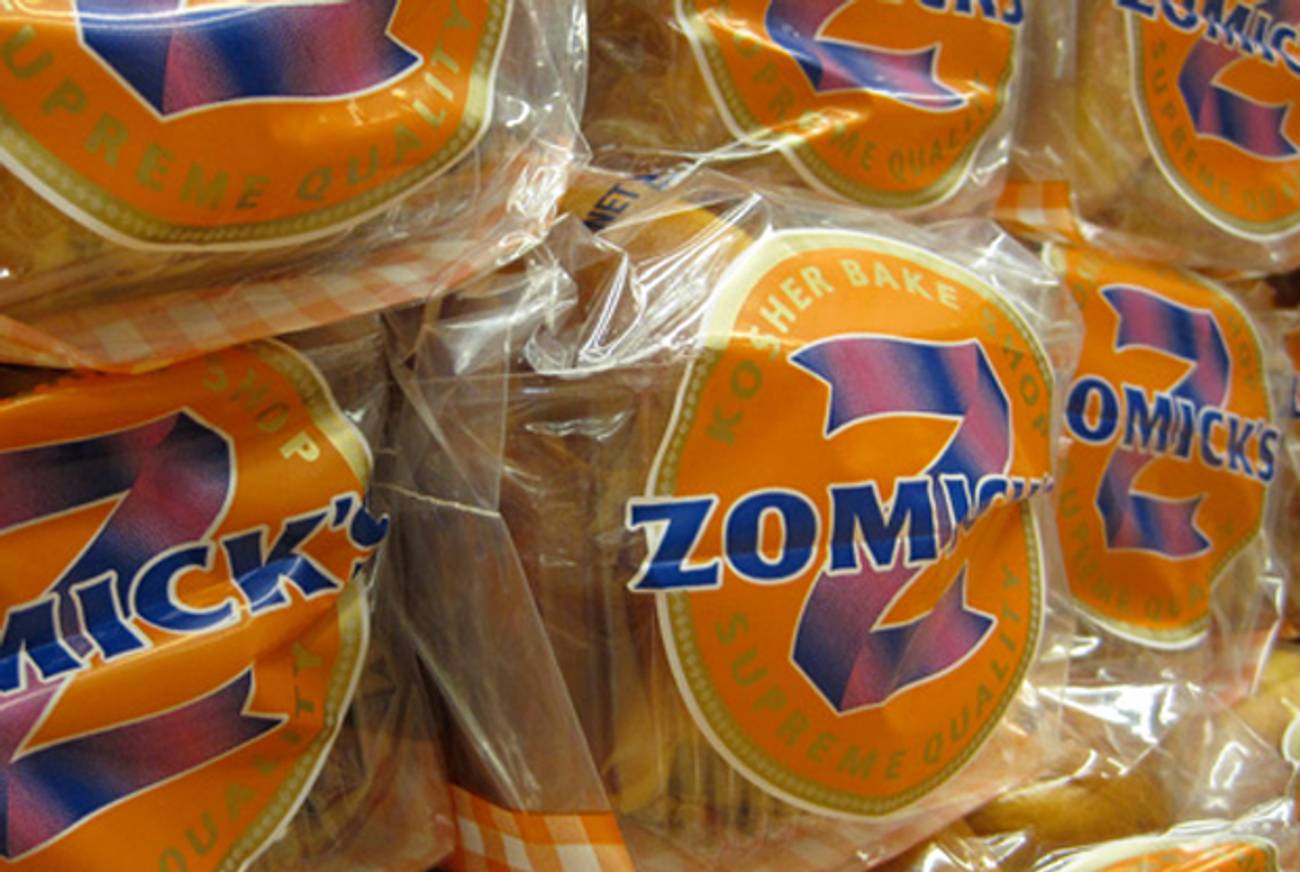Why Kosher Doesn’t Necessarily Mean Clean
How pest-plagued Zomick’s Bakery stayed open despite violations




Last week we learned that Zomick’s Bakery failed 10 out of 17 of its last health inspections, prompting challah eaters to unite in disgust and collectively wonder: why was the bakery approved for kosher certification if it was infested with vermin? While we may like to think of a hechsher as an extra safety precaution in our food’s cleanliness, it turns out that’s not exactly how it works.
Food production facilities and restaurants are pest-prone environments. New York City’s ABC Grading System, for example, requires a restaurant to display its grade visibly in the front window, so consumers can be aware of the establishment’s rating when deciding whether to dine there. An A grade, however, still allows for 13 deficiency points. More than 28 points deducted merits a C grade, but it takes three consecutive C grades to actually shut down a restaurant.
When kashrut is involved, there’s an additional standard. A kosher establishment not only needs to pass a state test, but a mashgiach’s as well. Ultimately, however, the two agencies function in essentially the same way.
First, it’s important to understand the process of a state inspection at a place like Zomick’s. In order for the New York State Department of Agriculture and Markets to have revoked its license, Zomick’s needed to fail four consecutive inspections, which it did not, passing its most recent in February 2013. But that passing mark was still filled with what seems, to consumers at least, to be abjectly unsanitary findings:
-20-30 old appearing mouse droppings are present on floor perimeter in food (corn meal) storage area.
-11-20 dead cockroaches & insects are noted on plastic and clear ceiling panels in bakery processing area.
Though unpleasant, these are considered “general deficiencies,” which are passable due to the aforementioned “nature of food preparation facilities,” explained Joe Morrissey, a spokesperson for the Department of Agriculture and Markets. When Zomick’s actually failed its inspections, it had “critical deficiencies,” which are “an immediate threat to the public health and welfare.” Whether general or critical, the inspectors want to work with an establishment to “rectify a situation,” not revoke its license, Morrissey said.
Additionally, Zomick’s had kosher inspections by its small, local kosher certification organization, Vaad Hakashrus of Five Towns (Vaad Hakashrus declined to discuss Zomick’s). I spoke with Rabbi Shmuel Heinemann, though, the Rabbinic Administrator of Star-K—one of the world’s largest kosher certification organizations—who explained some of the intricacies of the certification process.
Heinemann said that while bugs are not kosher, their appearance does not automatically cue the revocation of an establishment’s kosher certification. It’s not uncommon for flour and cornmeal to have some bugs in it when it’s improperly stored by a distributor before the bakery even purchases the product. It isn’t necessarily the fault of the bakery, Heinemann explained, noting that he was unfamiliar with particular situation at Zomick’s. If the flour or cornmeal has only a few bugs inside, the employees can sift the mixture and get rid of the bugs. However, if there’s a serious infestation, it must be returned to the distributor or thrown away.
Like the Department of Agriculture and Markets, a mashgiach’s goal isn’t to keep establishments from getting certification. “We try to help the facility correct their problems,” Heinemann said. “They understand generally that infestation is not only a health problem but a Kashrut problem.”
But unlike the Department of Agriculture and Markets, kosher certification organizations visit their clients all the time. State inspections, Morrissey explained, can take place just once a year for an establishment in compliance, and a few times a year for an establishment with multiple violations, like Zomick’s. (Zomick’s released a statement last week saying, “While we may have had a few isolated incidents years ago, the bakery adheres to the highest standards of safety and has passed all recent inspections.”)
Still, an employee at the Vaad Hakashrus of Five Towns who didn’t want to be identified asserted that the bakery “couldn’t have been that bad” if it passed the most recent Department of Agriculture and Markets inspection. Star-K’s Heinemann, meanwhile, assured me that while smaller kosher certification organizations might have less experience with health inspection situations, they should theoretically be able to help an establishment deal with these types of issues.
Basically, if a food preparation facility has a pest problem, its kosher certification isn’t at risk of being revoked so long as the facility appears to be addressing the problem. Had Zomick’s continued to fail state inspections, though, the bakery might have faced more serious consequences.
Romy Zipken is a writer and editor at Jewcy. Her Twitter feed is @RomyZipken.